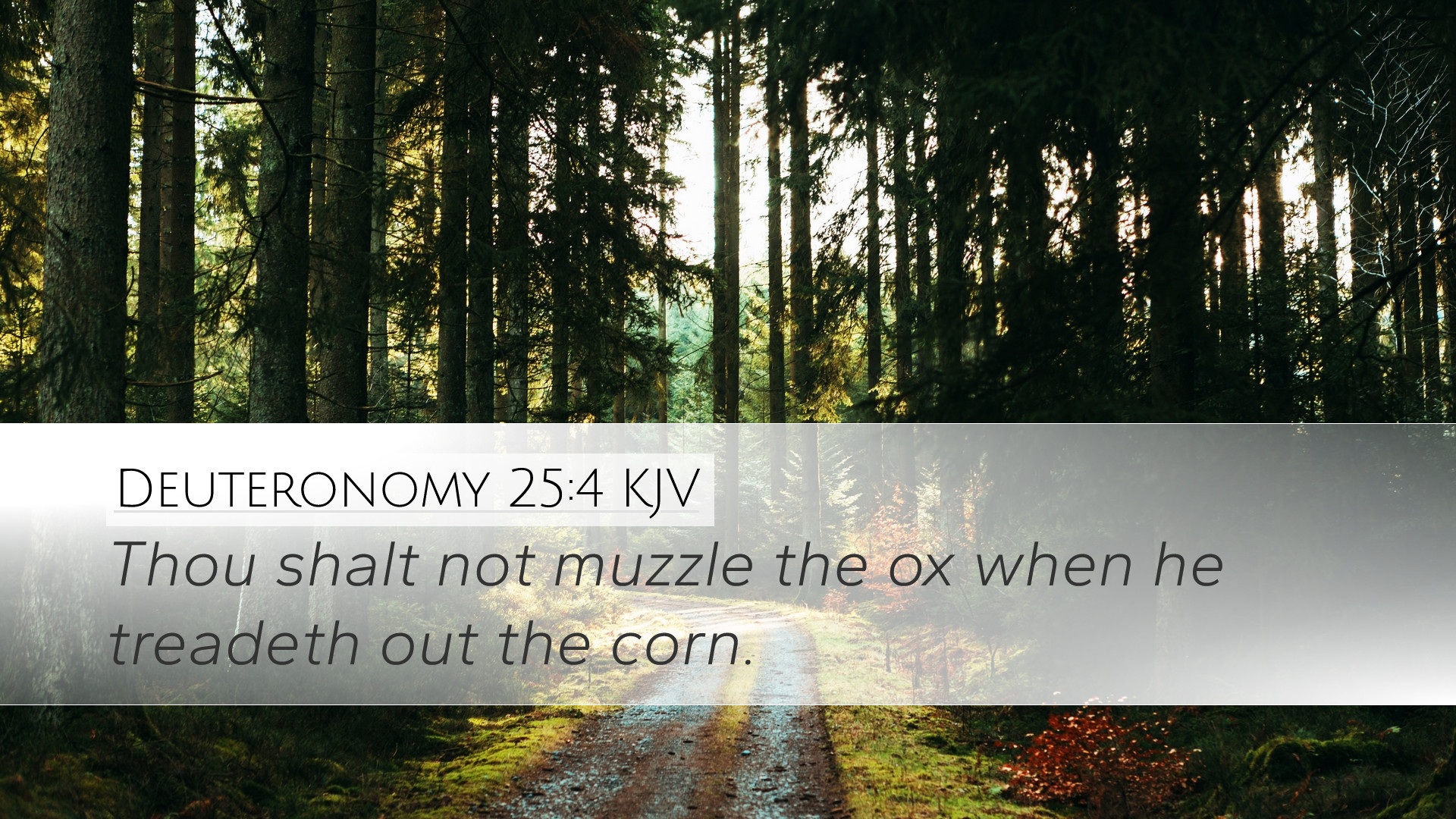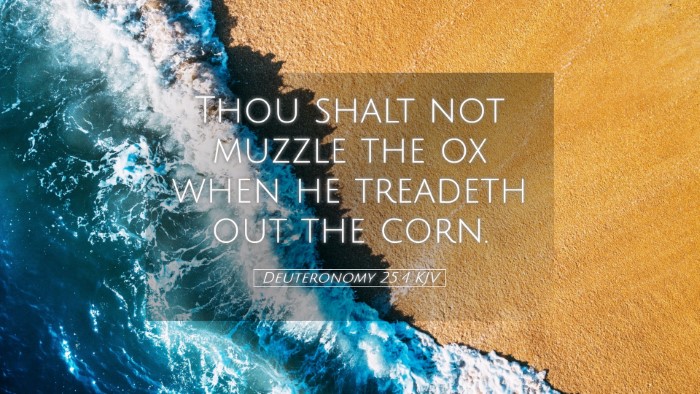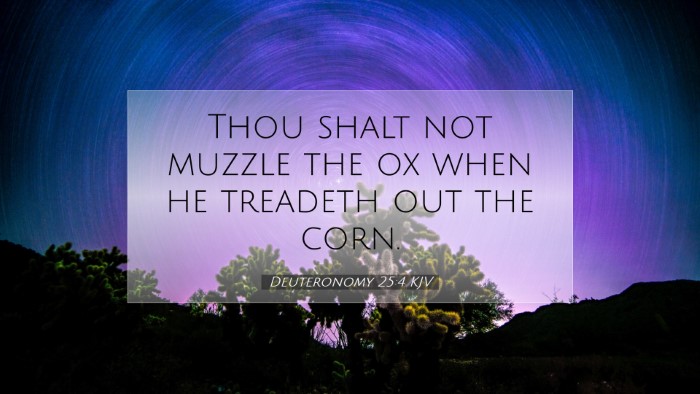Commentary on Deuteronomy 25:4
Verse: "Thou shalt not muzzle the ox when he treadeth out the corn." (Deuteronomy 25:4, KJV)
Introduction
This verse presents a profound principle embedded in Mosaic Law, reflecting both ethical concerns and the nature of God's provision. It might appear simple, but its implications reach deep into the theological, social, and moral fabric of biblical teachings. The following commentary aims to explore these dimensions through the insights of noted biblical scholars such as Matthew Henry, Albert Barnes, and Adam Clarke.
Textual Analysis
At first glance, the directive not to "muzzle" an ox while it is working may seem like a matter of animal husbandry; however, it serves a larger purpose. This command not only reflects God's concern for the well-being of animals but also communicates a broader ethical principle regarding labor and reward.
Insights from Commentaries
-
Matthew Henry:
Henry highlights that this commandment illustrates God's justice and mercy. He emphasizes that the ox is entitled to partake of the fruits of its labor, symbolizing the principle that laborers (including ministers) should share in the benefits of their work. This not only reflects God's concern for animals but also extends to the treatment of human laborers, promoting the idea of fair compensation.
-
Albert Barnes:
Barnes explains that this law showcases God's intention for humane treatment of all living beings. He notes that the principle can be applied morally to human contexts, advocating for equitable earnings for those who labor. Barnes posits that this verse might be referenced in the New Testament (1 Corinthians 9:9 and 1 Timothy 5:18), wherein Paul draws from this Old Testament citation to advocate for the financial support of those who preach and teach.
-
Adam Clarke:
Clarke addresses the idea that this commandment serves to remind the Israelites of their moral duty towards their working animals, as well as towards their fellow Israelites. He discusses how the ox symbolizes hard work and dedication, and thus, by allowing the ox to eat while it works, it serves as a metaphor for honoring those who work tirelessly in service to others, either in religious or secular contexts.
Theological Implications
This verse extends beyond mere agricultural instructions. The refusal to muzzle the ox while it treads out the corn speaks to God's overarching justice and concern for the principles of equity. The metaphor encourages believers to recognize the intrinsic value of labor and promotes a culture of respect and reward for all who contribute positively to society.
The Apostle Paul adopts this principle in his teachings, urging the early church to support those who labor in teaching, which not only reflects obedience to the Old Testament command but also highlights a continuity in God's ethical standards across both Testaments.
Practical Applications
For pastors, students, and theologians, this verse prompts consideration of how contemporary practices align with biblical principles regarding labor and reward. Here are a few applications:
- Support for Ministry: Just as the command exhorts fair compensation for laborers, churches are encouraged to provide adequately for their pastors and staff, ensuring they can focus on their ministry.
- Recognition of All Labor: This principle encourages the acknowledgment of all forms of labor, emphasizing that every contribution holds value and should be respected.
- Ethical Business Practices: In the secular workforce, this verse serves as a reminder to treat employees fairly and with dignity, ensuring they are rewarded for their hard work.
Conclusion
Deuteronomy 25:4 provides a compelling snapshot of God's heart for justice and mercy within labor practices. By contextualizing this ancient command within modern frameworks of pastoral care, community service, and ethical labor practices, we can glean profound insights that remain pertinent today. The messages derived from this verse challenge us to foster a spirit of dignity and respect for all who work, reflecting God's character through how we treat one another.


